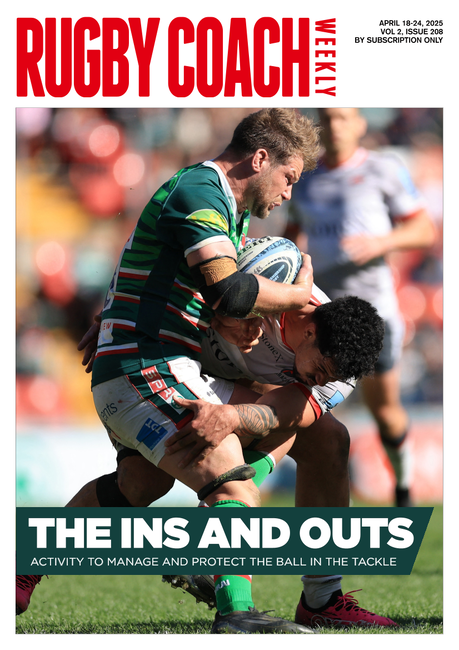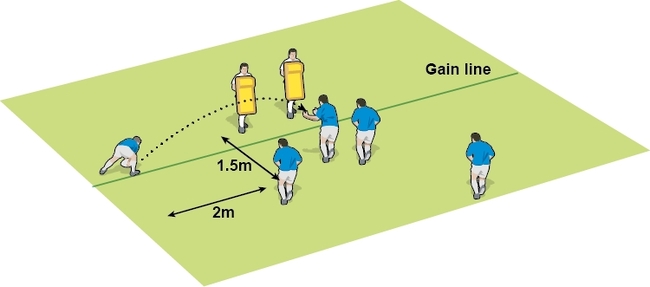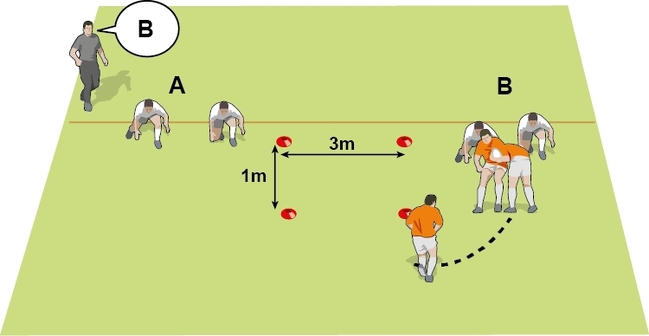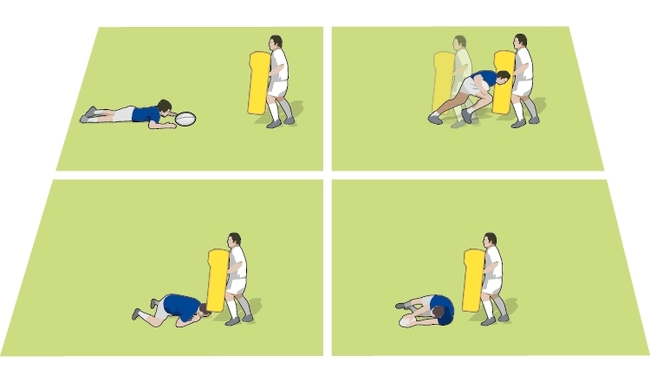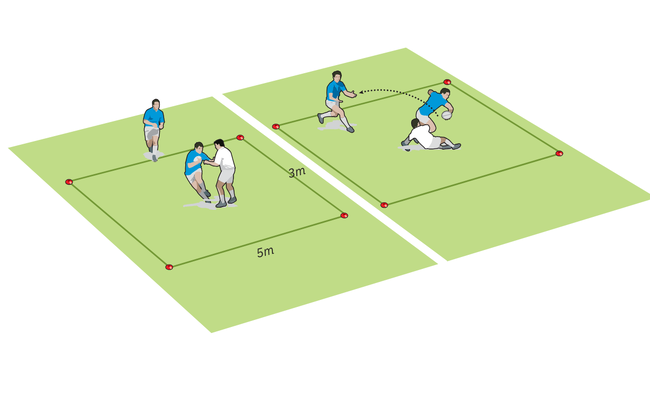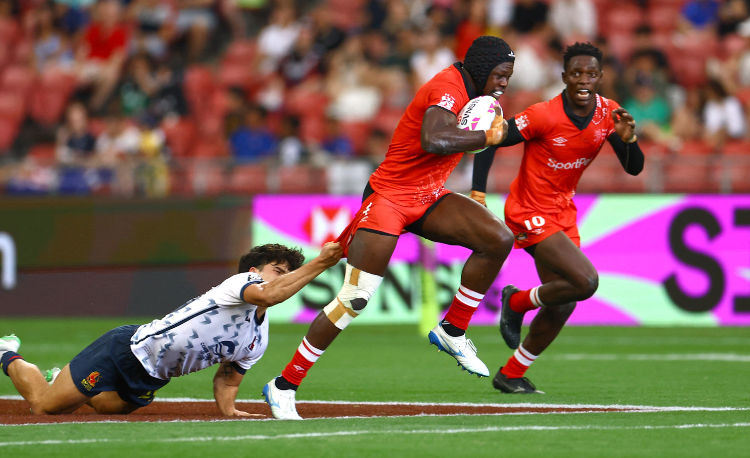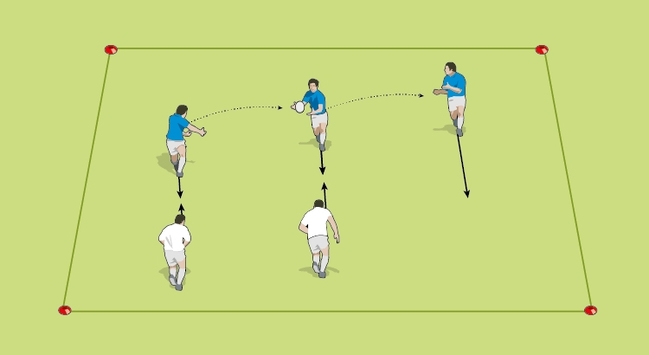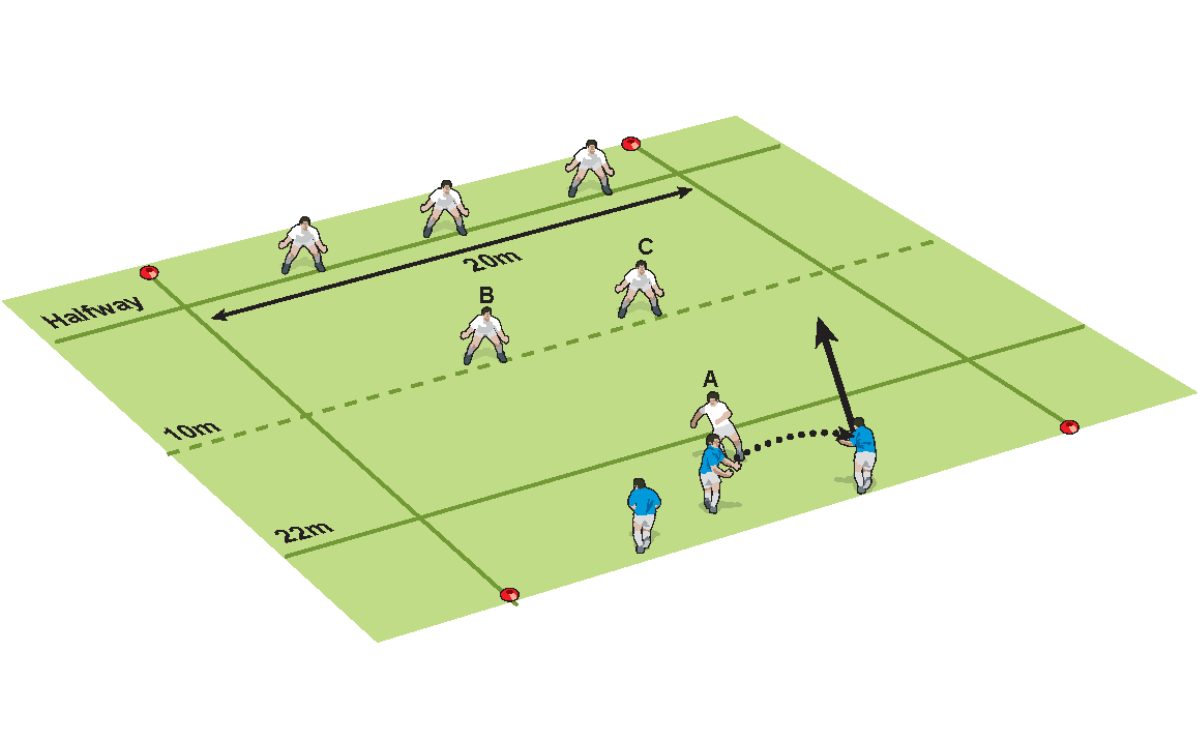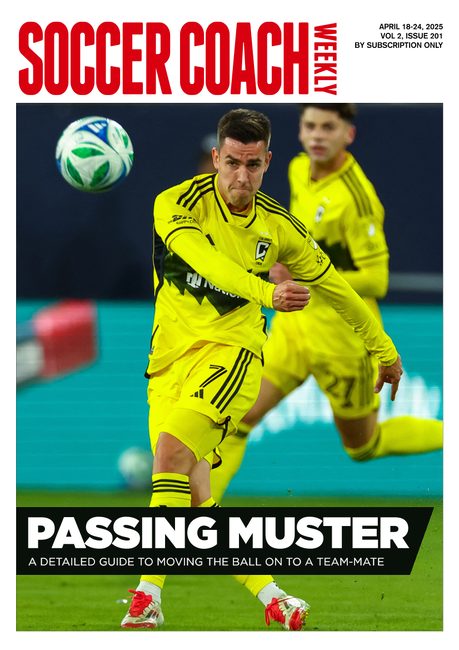Rugby coaching tips for turnover ball
Jim Love, Viadana's head coach, likes to dedicate time in training to turnover ball. Here he describes his strategies for dealing with these situations in matches.
Defending against turnover ball
We have a clear tactic to reorganise and reduce the potential damage. The first move is for the back three, the two wingers and full back to drop back. Many sides will kick turnover ball and we need to protect our back field.
The rest of the players employ a scatter defence. The inside players will "push up and out". This means they will run up to the gain line and then push out along it. They won't, however, venture beyond the gain line.
The players on the extreme of the defensive line will act slightly differently. They will push up but not as far as the gain line.
Because of the nature of a turnover, stopping the attack on the gain line is a bonus. Therefore we are willing to give up territory to ensure we are secure under their attack.
Winning Turnover Ball – The "Three Pass" Rule
Winning turnover ball stacks the odds in your favour. If we win a turnover we always try to push the ball three passes away from the turnover point. The players will then consider the options. Sometimes there will be overlap. If not, a chip over the top of the defence will normally be the choice.
It is likely the opposition full back will not be in place because he was involved in the attacking line. He might well be chasing back into position so the quicker the three passes, the more chance of exploiting this opportunity.
We train to make it second nature that we will follow the same pattern when we win turnover ball. We use lots of games and rugby drills where there can be an opportunity for a turnover to arise. Sometimes this is by my instigation, for instance I might say "when I blow the whistle, the ball is given to the other side", at other times by setting up the defence and attack in "standard" positions before giving the ball to the defenders.
Key rugby coaching tips
- Use rugby training games to get players familiar with turnover ball tactics.
- In defence, be prepared to give up some ground to ensure there are no leaks.
- In attack, move the ball three passes away quickly from the turnover and then check the options.
Jim Love is head coach of Viadana, the Italian Heineken Cup team, and CEO of the New Zealand Sports Academy (www.nzsportsacademy.co.nz). He is a former coach of the Maori All Blacks and took Tonga to the 2003 rugby world cup.
Jim is also a regular contributor to my Rugby Coach publication, specially designed to help you become a more confident, successful rugby coach in just 30 minutes a month.
Click here to read more, learn about the great offers available when you sign up and to become a subscriber today.
Newsletter Sign Up
Coaches Testimonials
Subscribe Today
Be a more effective, more successful rugby coach
In a recent survey 89% of subscribers said Rugby Coach Weekly makes them more confident, 91% said Rugby Coach Weekly makes them a more effective coach and 93% said Rugby Coach Weekly makes them more inspired.
Get Weekly Inspiration
All the latest techniques and approaches
Rugby Coach Weekly offers proven and easy to use rugby drills, coaching sessions, practice plans, small-sided games, warm-ups, training tips and advice.
We've been at the cutting edge of rugby coaching since we launched in 2005, creating resources for the grassroots youth coach, following best practice from around the world and insights from the professional game.


